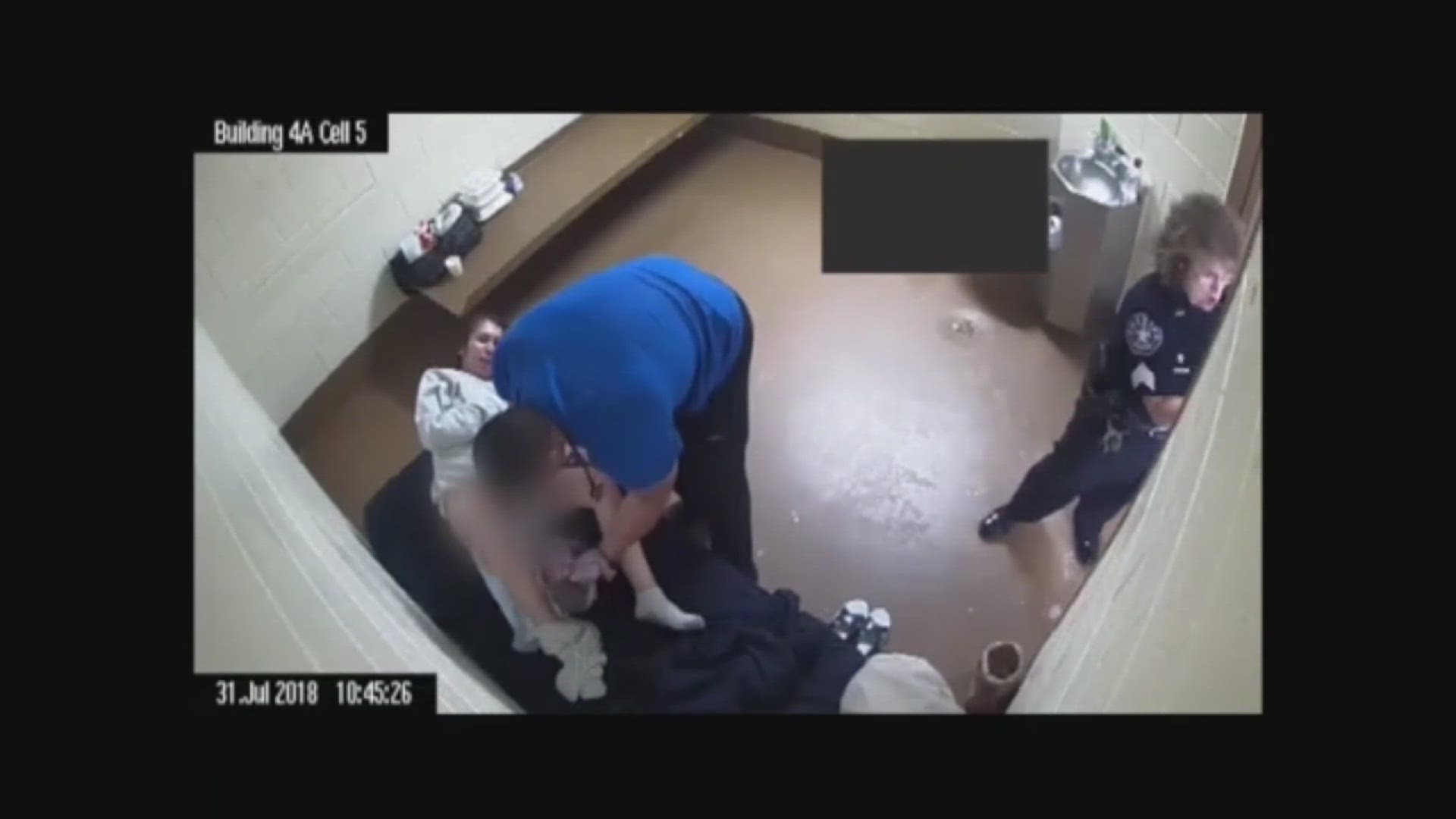DENVER — Pregnant people who face prison time in Colorado might not have to be behind bars under a law that went into effect Aug. 7 that encourages judges to find alternatives in sentencing.
The law comes five years after Diana Sanchez gave birth inside her cell at the Denver County jail. Her attorney Mari Newman shared a video of the incident when they filed a lawsuit in 2019.
"The video of Diana giving birth in her cell all alone just feet away from the toilet is horrifying, and I wish it were an isolated incident, but it's not," Newman said. "This kind of thing has happened over and over and over again."
Sanchez had been in jail for a couple of weeks when she gave birth and was incarcerated for a non-violent crime, Newman said.
In 2019, Daria Serna, spokesperson for the Denver Sheriff's Department, said an investigation revealed that deputies "took the appropriate actions under the circumstances and followed the relevant policies and procedures."
"After learning that Ms. Sanchez gave birth in a cell at the Denver County Jail on July 31, 2018, Sheriff [Patrick] Firman immediately ordered Internal Affairs to conduct a review to understand what happened. Denver Health was also asked to review this incident," she said in a statement in 2019.
Serna added that at that time, as a result of the investigation, the policy was "clarified" to mandate that ambulances be called when an inmate is in labor.
"She was provided no medical care whatsoever for hours and hours and hours, laboring by herself," Newman said. "It illustrates just why it's so important, why women and people who are pregnant should not be incarcerated."
The video of the incident started a lawsuit that has since been settled, but it also inspired a bill that is now a law.
HB23-1187 encourages courts to offer alternative sentencing and bond amounts for defendants who are pregnant and pose no risk to the public. It went into effect Aug. 7.
"There are alternatives people can be given, deferred sentences people can be given, deferred prosecution, or maybe let out on certain kind of release," Newman said. "There are different kinds of alternatives because one size doesn’t fit all. I have no doubt that if this law were in place, Diana and her child would have not experienced this. It really illustrates why the law is so necessary. People that are pregnant should not be in jails or prisons."
While the law does not mandate judges, it does provide them options in sentencing that Newman said she hopes judges will consider. She said while Sanchez was not the first to experience this, she hopes she is the last.
"No mother and child, or parent and child, should have to suffer the same kind of terror and indignity as Diana did, and as other parents have," she said.
HB23-1187 not only protects pregnant people from incarceration but postpartum individuals, as well. Newman said it is important for parents after birth to have that time with their baby.
"I think the postpartum piece really deserves attention as well because the bonding between a parent and child immediately after birth is something you only get one chance for that and its generational trauma that could never be fixed if parents and children are not able to bond immediately after birth," she said.
More 9NEWS stories by Jaleesa Irizarry:
SUGGESTED VIDEOS: Latest from 9NEWS

